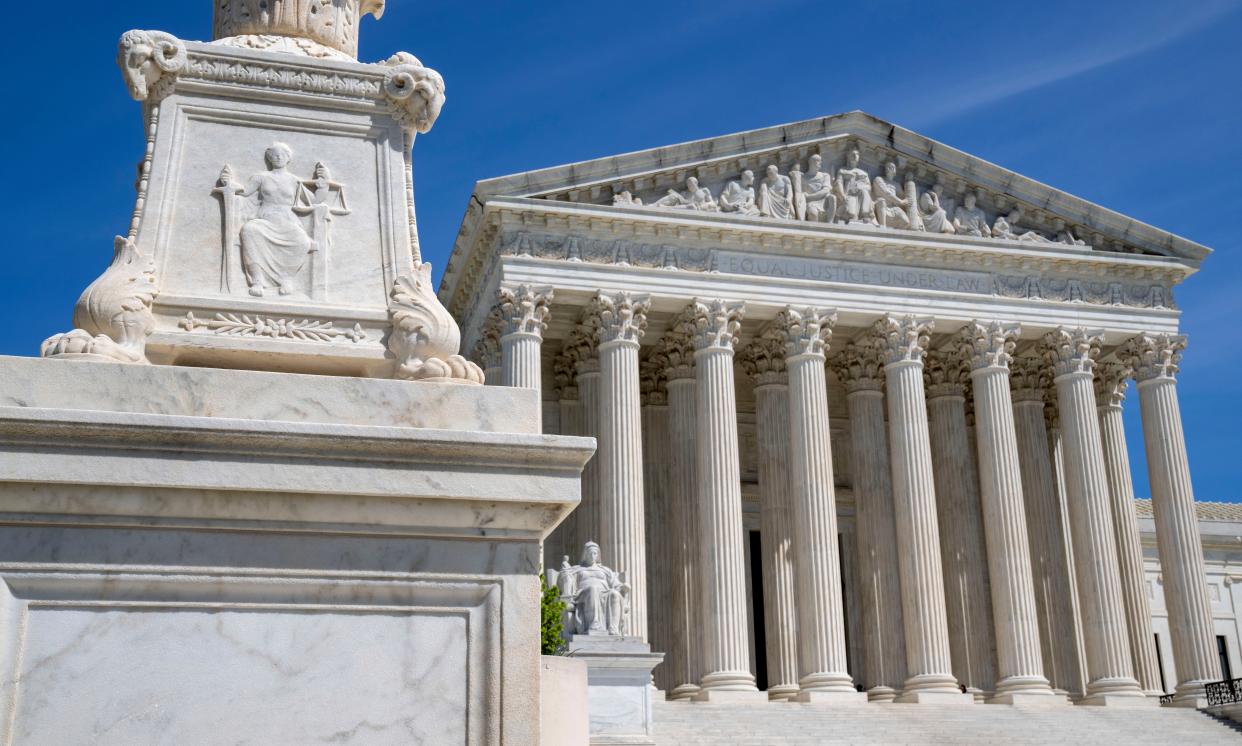MO Attorney General: U.S. Supreme Court must protect First Amendment from the government

- Oops!Something went wrong.Please try again later.
In a free society, the debate between opposing viewpoints should be played out in the marketplace of ideas. Enshrined in the First Amendment, our right to free speech is the bedrock of our great nation. Unfortunately, free speech is under attack by the very people sworn to protect it: government officials.
In October, the United States Supreme Court agreed to hear our bombshell censorship case, Missouri v. Biden, in which we alleged — and proved — a conspiracy by government officials to silence conservative speech on social media. In partnership with Louisiana, my office filed suit to combat the Biden Administration’s censorship of speech that challenged the government’s narrative on everything from the COVID–19 lab leak theory, to the Hunter Biden laptop story.
The Biden Administration’s censorship campaign was unsparing. It targeted government officials, scientists, healthcare workers, academics, and everyday Americans. Left-leaning federal bureaucrats used both direct and implied threats to distort public debate on key issues over the course of several years. We sued to stop it, and thankfully, the Supreme Court agreed to hear the case.
The vast censorship enterprise uncovered in Missouri v. Biden is highly disturbing. What’s worse is it’s not the only example. The Supreme Court has agreed to review yet another case involving government censorship against political opponents: NRA v. Vullo.
Vullo goes back to 2017, when New York Governor Andrew Cuomo hatched a plot to destroy the National Rifle Association (NRA) and its ability to advocate for gun rights. Working with Maria Vullo, head of New York’s Department of Financial Services (DFS), which supervises and regulates the activities of nearly 3,000 financial institutions, New York initiated a campaign of public warnings and backroom threats to financial institutions designed to hamper the NRA’s ability to function.
Their message: drop the NRA, or face regulatory reprisals.
This campaign succeeded. One of the NRA’s longtime insurance partners told them it had no choice but to “drop” their business for fear of losing its New York business license. The NRA’s longtime corporate insurance providers withdrew from ongoing negotiations to renew coverage, saying they were unwilling to do business with the NRA at any price in light of New York’s threats. A third insurance company stated in internal minutes that New York’s actions had transformed the matter of doing business with the NRA into a “compliance issue.”
New York’s DFS followed up by announcing large fines targeted at the NRA’s insurance partners for conduct it regularly excused in other contexts. DFS then issued a directive calling on all banks and insurance companies doing business in New York to “review any relationships they have with the NRA or similar gun promotion organizations, and to take prompt actions to managing these risks and promote public health and safety” in light of what it called the “social backlash” against the NRA and “the voices of the passionate, courageous, and articulate young people” denouncing the gun rights group. Governor Cuomo issued a public directive the same day which underscored the purpose of Superintendent Vullo to drive the NRA out of New York. The NRA filed suit to end this blatant violation of its First Amendment rights.
New York’s actions are inherently unconstitutional. In the 1960s, the Supreme Court held that implicit threats of reprisal against speakers disfavored by the government violate the First Amendment. This precedent is the same that supports our lawsuit, Missouri v. Biden. Applying this clearly established law, the Northern District of New York held that the NRA stated a cause of action for violation of the First Amendment. On appeal, the Second Circuit wrongfully reversed. Citing a Diversity, Equity and Inclusion Consultant, it held that “this age of enhanced corporate social responsibility” justified regulatory concern about “general backlash” against a customer’s political speech. Under this view, any censorship of free speech would be justified by simply claiming the government has a general regulatory interest in combatting so-called “misinformation.” That is antithetical to our constitutional freedoms.
Thus, I filed a brief requesting the Supreme Court review NRA v. Vullo. They agreed to hear the case, and the stakes could not be higher.
Cuomo made no bones about his intentions when he posted on social media, “The regulations NY put in place are working. We’re forcing the NRA into financial jeopardy. We won’t stop until we shut them down.” This type of government bullying and censorship cannot stand.
Regulators have enormous power over our lives — especially our finances. If speaking out on public issues in opposition to government officials means they can cut off access to financial services, our country has become little more than a dictatorship.
That’s not the America I fought to defend on the battlefields of Iraq or swore to protect as Missouri’s 44th Attorney General.
If the Supreme Court lets the Second Circuit’s decision stand, it will set a devastating anti-free speech precedent at a time when the First Amendment is under widespread attack. The Supreme Court should correct the Second Circuit’s egregious misstep and uphold our constitution.
Andrew Bailey is a combat veteran and the 44th Attorney General of Missouri.
This article originally appeared on Springfield News-Leader: MO AG: U.S. Supreme Court must protect First Amendment from government

